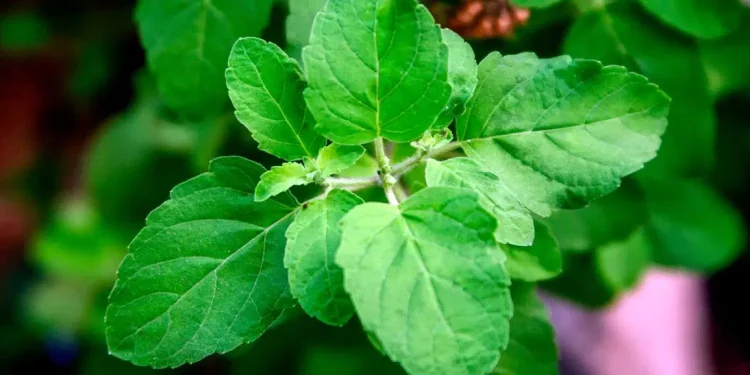Ocimum tenuiflorum, commonly known as Holy Basil, is an aromatic herb with a rich history of cultural and spiritual significance. However, its benefits extend beyond its religious symbolism. As a medicinal herb and natural pesticide, Holy Basil has the potential to revolutionize sustainable agriculture.
Holy Basil, or Tulsi as it is also known, has been revered for centuries in India and other South Asian countries for its medicinal properties. According to a study published in the Journal of Ayurveda and Integrative Medicine, Holy Basil has antimicrobial, antiviral, and anti-inflammatory properties, making it an effective treatment for a variety of health issues in humans and animals. But its benefits don’t stop there.
In recent years, Holy Basil has been studied for its potential use as a natural pesticide. A study conducted by the Indian Council of Agricultural Research found that an extract of Holy Basil could control pests such as the diamondback moth, a common pest that affects cruciferous vegetables like cabbage and broccoli. The extract was found to be just as effective as the synthetic pesticide imidacloprid, but without the harmful effects on beneficial insects like bees.
Another study conducted by the University of Agricultural Sciences in Bangalore, India, found that Holy Basil extract could be used as a bio-herbicide to control weeds such as the invasive species Parthenium hysterophorus. The extract was found to be effective in inhibiting the germination and growth of the weed.
The use of Holy Basil in agriculture could have significant consequences for sustainable farming practices. As a natural alternative to synthetic pesticides and herbicides, Holy Basil could reduce the negative impact of agricultural practices on the environment, such as soil degradation and water pollution. Additionally, the cultivation of Holy Basil could provide farmers with an additional source of income, as it is a valuable medicinal herb.
In conclusion, Holy Basil has a variety of benefits for agriculture, from its use as a natural pesticide to its potential to improve sustainable farming practices. As research continues to explore the many uses of this sacred herb, it is likely that we will see more widespread adoption of Holy Basil in agriculture.
Tags: #HolyBasil #Tulsi #NaturalPesticide #BioHerbicide #SustainableFarming #MedicinalHerb #Agriculture #Farmers #Agronomists #AgriculturalEngineers #FarmOwners #Scientists












